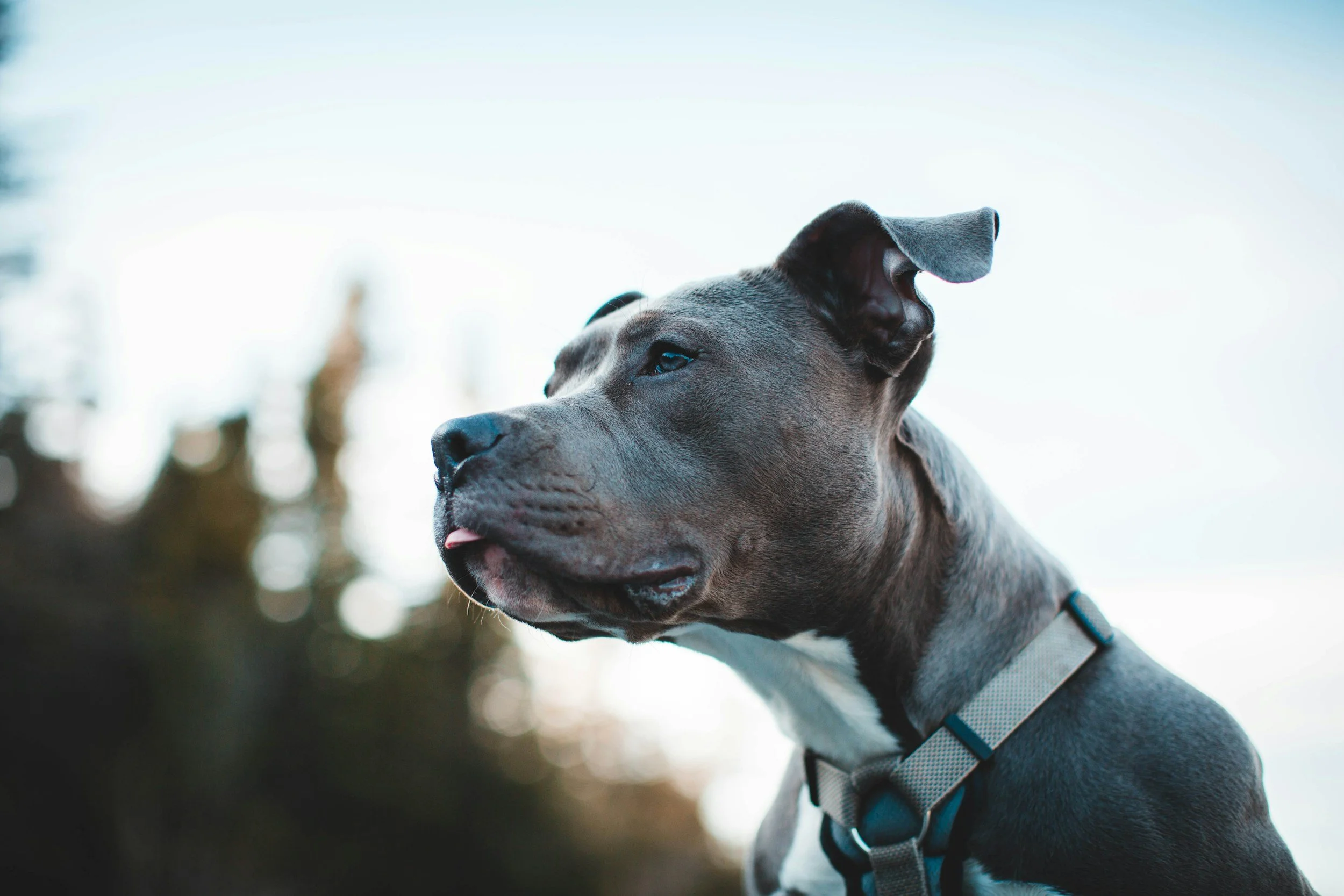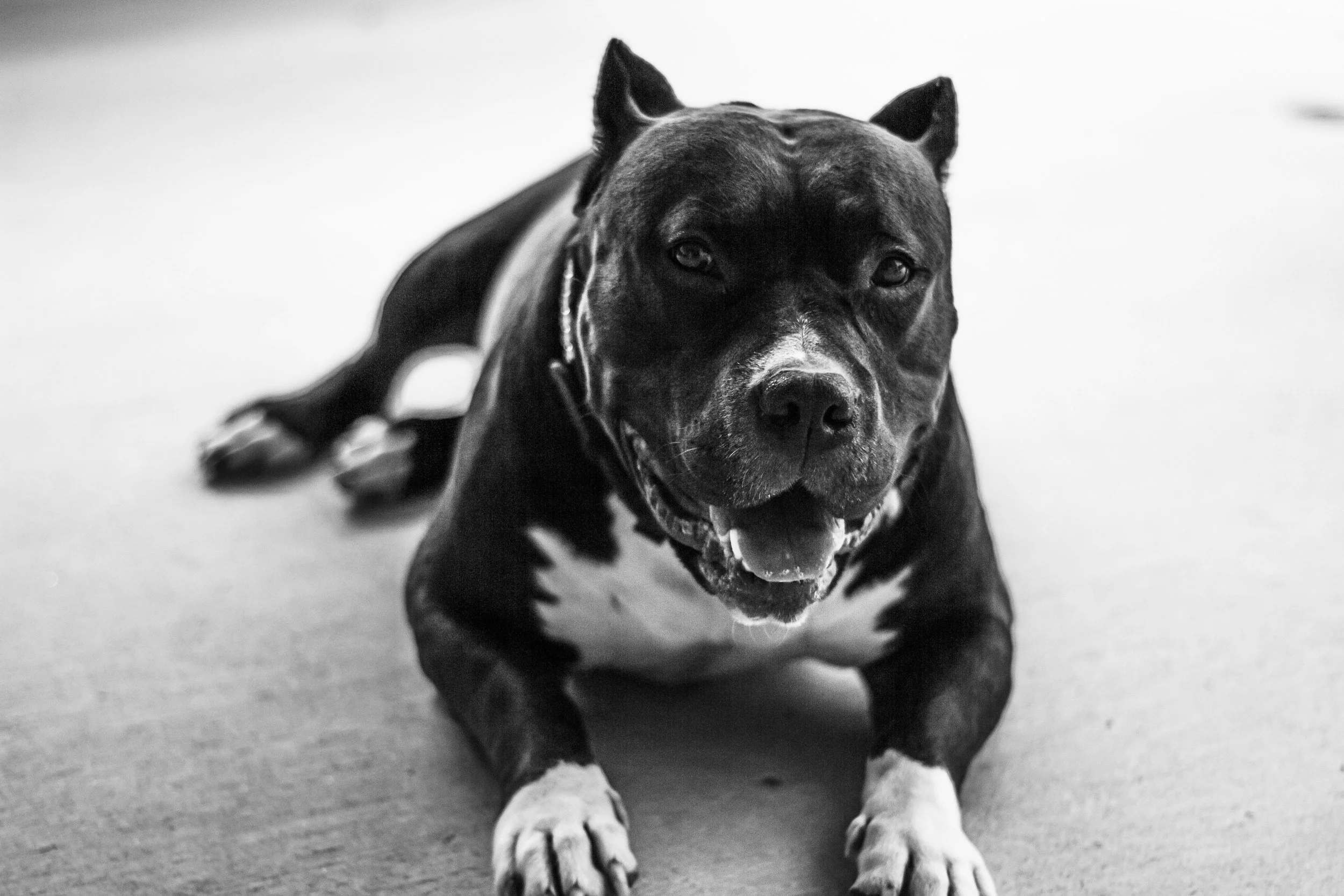The Truth About Pit Bulls: Myths, Facts, and Why We Need to Fight For Them
Few breeds are as misunderstood as the pit bull. If you're a current client, you know how passionate I am about these misunderstood dogs. From media headlines to housing restrictions, the term “pit bull” often sparks fear, controversy, and misinformation. But beneath the stigma lies a reality that countless dog owners, trainers, and breed advocates know well:
Pit bulls are loyal, affectionate, intelligent dogs that make wonderful family companions.
Let’s break down the myths, look at the facts, and uncover the truth about this deeply misunderstood breed.
What is a “Pit Bull,” Really?
Pit bulls are actually angels, and their violent reputation isn’t fair to them.
The term “pit bull” is not a breed itself, but a general label used to describe a group of breeds with similar physical characteristics. This usually includes:
The American Pit Bull Terrier
The American Staffordshire Terrier
The Staffordshire Bull Terrier
And sometimes, the American Bully and mixed breeds with similar looks
Due to their muscular builds and blocky heads, many mixed-breed dogs are mistakenly identified as pit bulls, even when they aren’t genetically related.
This confusion has fueled unfair breed stereotypes and made it easy to lump countless unrelated dogs into one misunderstood category.
A Brief History: England’s Working Dog
Pit bulls were originally bred to protect children.
Pit bulls trace their origins back to 19th-century England, where they were bred for tenacity, intelligence, and loyalty. These dogs were farm helpers, family protectors, and were often called nanny dogs, known for their strong bonds with humans and high tolerance for children.
Bred for their work ethic and people-oriented nature, these dogs were never intended to be indiscriminately aggressive. In fact, their temperament was highly valued, as dogs that were difficult to manage or showed poor judgment around people were not kept or bred.
That strong desire to please their humans, paired with impressive physical ability, is still present in the breed today.
The Myth of the “Aggressive Pit Bull”
In behavior testing, pit bulls outperform many other dog breeds.
Let’s address the biggest myth head-on:
Are pit bulls more aggressive than other dogs?
No. Absolutely not, and if you’ve had the pleasure of knowing one, you know you are more likely to be knocked out by one of their farts than ever facing a bite.
According to the American Temperament Testing Society (ATTS), a respected organization that evaluates breed temperament through controlled behavioral tests, pit bulls consistently score higher in affection and sociability than most commonly owned breeds, such as labs, goldens, and 96% test higher than “doodles”.
These tests evaluate dogs on their reactions to strangers, loud noises, distractions, and overall stability. A high score means a dog is well-balanced, manageable, and safe around people.
Pit bulls didn’t just pass; they outperformed many popular breeds that are widely considered “safe” or “ideal” for families.
Why the Misinformation?
Historical bias is just one reason why pit bulls are supposedly violent.
Why are pit bulls consistently portrayed in such a negative light? The answer comes down to misidentification and media bias.
When a dog-related incident happens, breeds like pit bulls are often blamed first, sometimes without verification. Because of their physical appearance and popularity in certain communities, they’re overrepresented in bite reports, even when the dog isn’t a pit bull at all. In fact, the most common dog bite seen in hospitals is a preventable, not serious, and oftentimes caused by the old family chihuahua or lab accidentally taking a treat a little too quickly from a child’s hands.
Combine that with selective media coverage and sensationalized stories, and the breed’s reputation suffers, regardless of the facts.
Pit Bulls as Family Dogs
Pitties are fantastic candidates for service animal work because of their high sensitivity.
In homes across the country, pit bulls are living as:
Gentle companions for children
Couch cuddlers and lap dogs
Service dogs, therapy dogs, and emotional support animals
Highly trainable working dogs in obedience, agility, and scent work
Our own N, L, and R are all majority bully breeds
They are affectionate, eager to please, and thrive in environments with structure, leadership, and love. When properly socialized and trained, like any dog, pit bulls can be calm, reliable, and deeply devoted to their families.
Their intelligence and sensitivity also make them quick learners who enjoy mental stimulation and human interaction.
Fun fact: In my almost 10 years of experience (as of October 2025) and hundreds of dogs worked with across all breeds, I have never been bitten seriously or otherwise by an “aggressive dog breed” like pitties, Dobermans, German Shepherds, or Rottweilers. In fact, I’ve only been seriously bitten 2 times in my 10 years, and only by labs and doodles. Not what the news would lead you to believe, right?
What Pit Bulls Need to Thrive
Pit bulls make amazing companions for humans of all ages and stages.
Like all dogs, pit bulls need responsible ownership. Here’s what sets them up for success:
Early training and socialization
Clear structure and boundaries
Regular exercise and mental stimulation
Positive reinforcement and leadership
A family that understands and advocates for them.
Jackets for cold weather
Of course, cookies, treats, love, and affection
They aren’t “easy” dogs; no intelligent, high-energy breed is. But they are worth every ounce of effort. And, when raised with intention and love, pit bulls are some of the most loyal, goofy, and affectionate dogs you’ll ever meet.
Final Thoughts: Let the Dog Speak for Itself
Don’t count a pit bull out if you’re thinking of adopting a dog; just be sure to pursue training and education about the breed!
The truth is simple: a dog should be judged by its behavior, not its breed.
Pit bulls are not a problem to be fixed. They are a misunderstood group of dogs who deserve fairness, not fear. And, the more we educate ourselves and others, the more these dogs will be seen for who they really are: incredible companions with huge hearts. No two dogs are alike, so get to know the pup instead of going in with things you think you know.
If you’re considering adopting a pit bull or currently share your home with one, connect with a trainer who understands the breed and can help you bring out the best in your dog — because there’s a lot to love, and even more to learn.
Of course, I’m biased. As I sit here writing this blog, I am greeted by the beautiful snores of my two pit bull mixes. In my humble opinion, being loved by a bully breed is unlike any other love.






